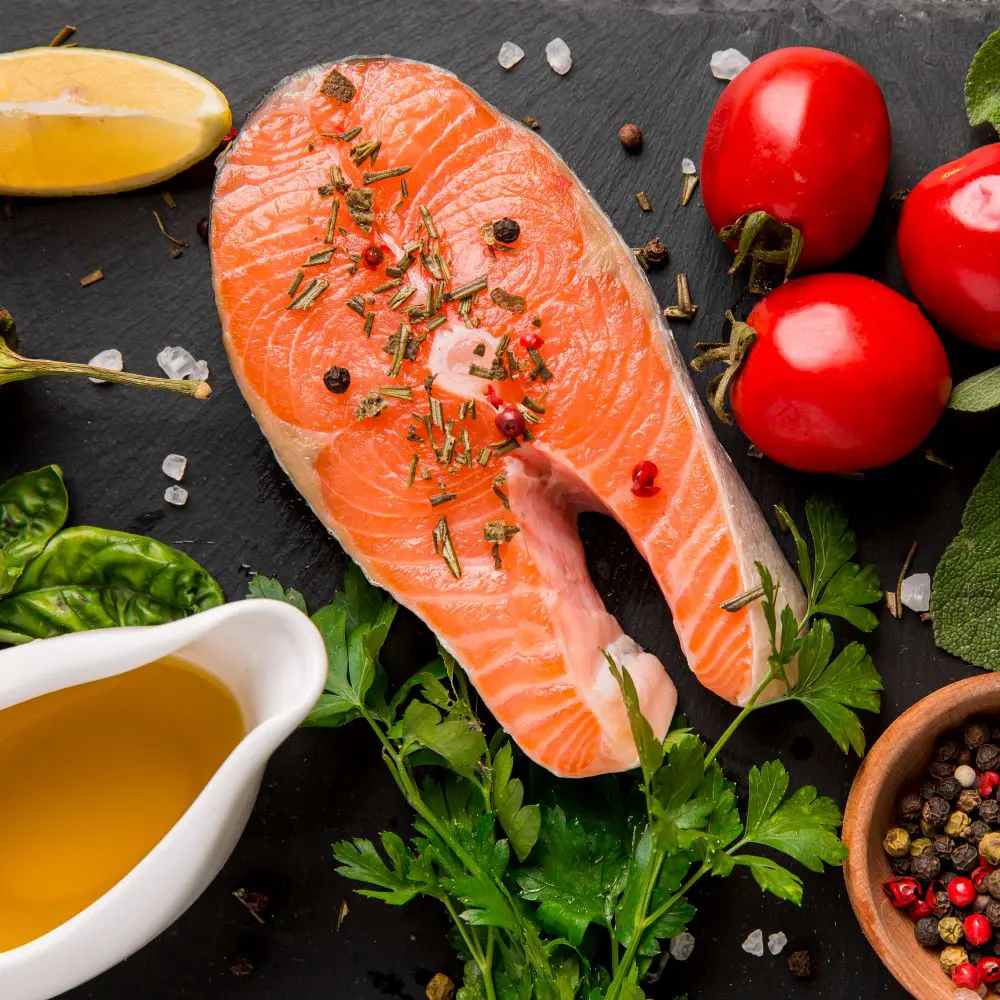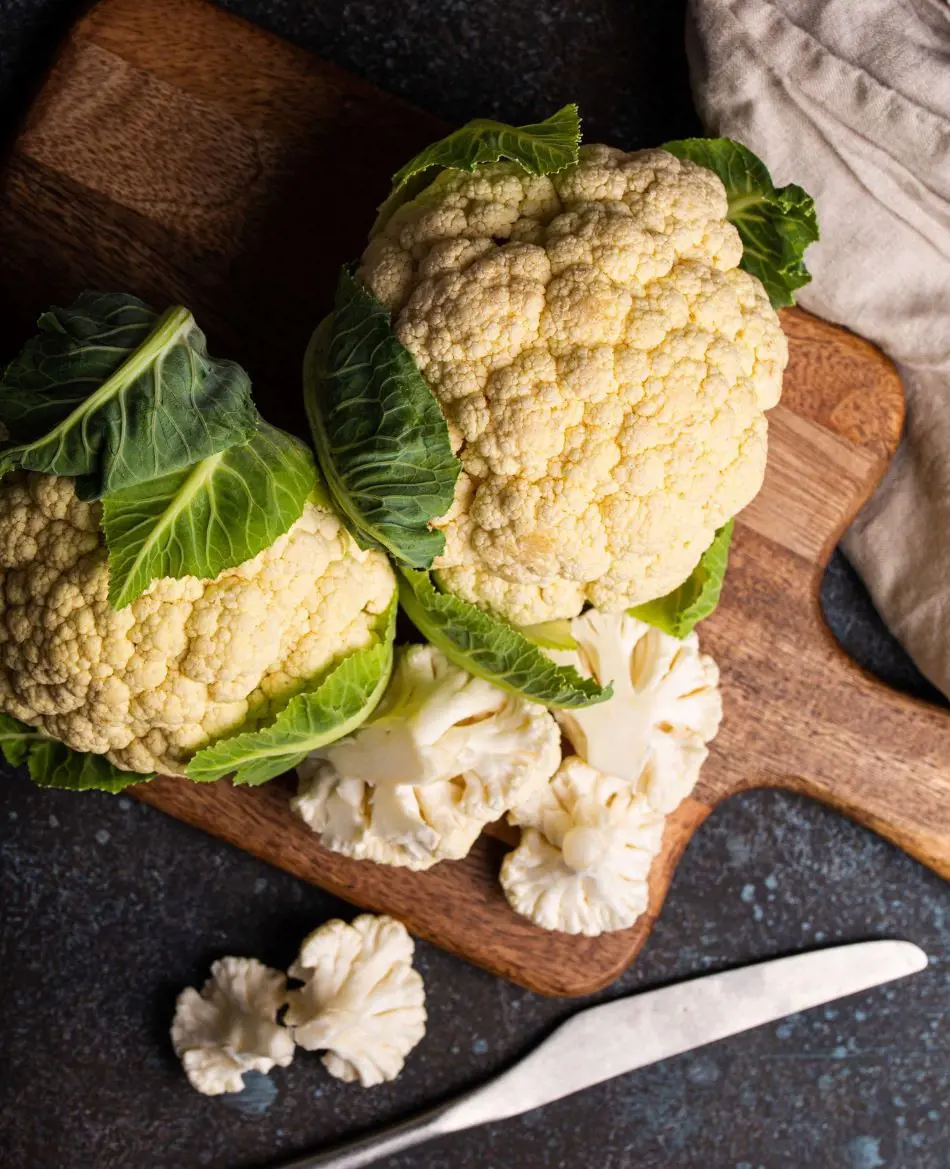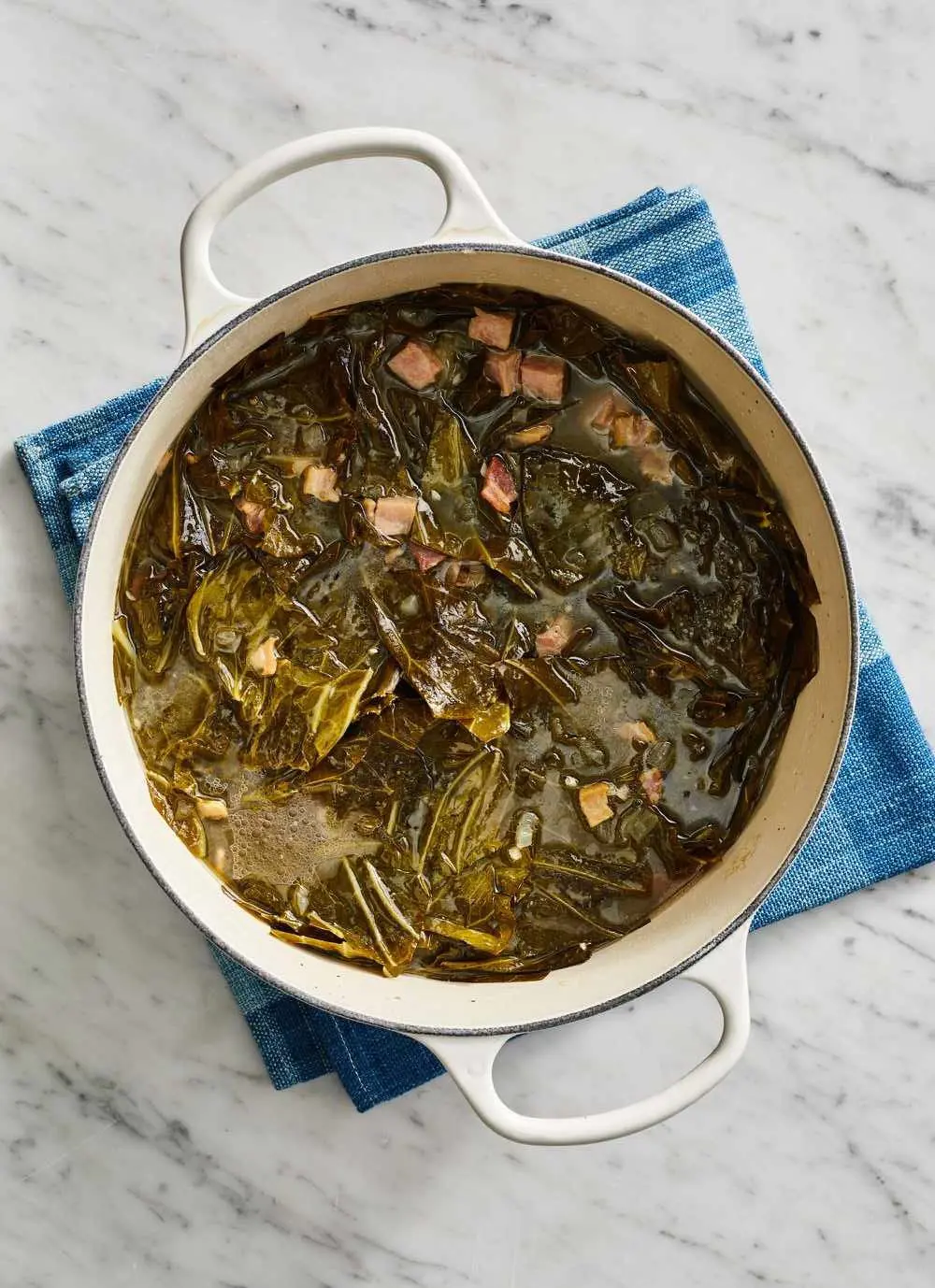12 Health Benefits Of Papaya You Should Know About
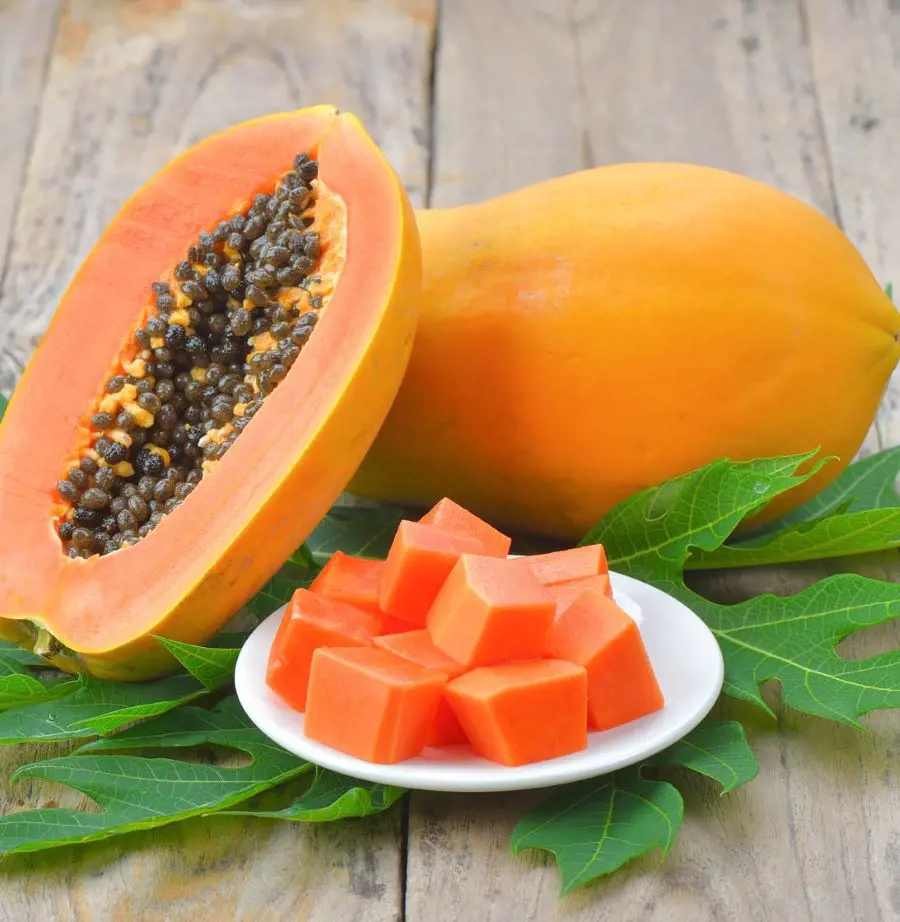
Do you know that having papaya can be a game-changer for your health? This tropical fruit is not only delectable but also presents a wide range of nourishing benefits, as it has powerful antioxidant properties, anti-cancer effects, fights inflammation, and more.
From being good for skin and eyes to improving digestion and helping one lose weight, papaya is considered the healthiest as it also controls high blood sugar and promotes digestive health and healthy hair. Check out papaya, its health benefits, nutritional value, and more.
1. Boosts Immunity

Papaya is a great option to make it part of an immune-healthy diet. It is rich in vitamin C, so eating food high in this nutrient helps to stimulate the immune system, keeping you resilient and healthy.
Even vitamin C supports white blood cell production, which allows our body to fight off bacterial and viral diseases. It has a good portion of antioxidants like beta-carotene and flavonoids, powerful compounds that protect against toxic free radicals, keep a healthy immune function, and lower the risk of chronic diseases.
2. Reduce Chronic Diseases Risk

As an antioxidant powerhouse, papaya is rich in antioxidants, such as carotenoids and flavonoids, that protect cells from damage induced by free radicals. These antioxidants are associated with lessening the chronic disease risk, like cancer, arthritis, and asthma, and encourage overall well-being.
- Protect Against Cancer: Papaya has the potential to protect against prostate cancer. Papaya contains a natural pigment called lycopene that is linked with reducing prostate cancer risk.
- Prevents Arthritis: As papaya includes anti-inflammatory properties, it helps to prevent the pain disorder caused by a rash in the joint, so it's very good for preventing arthritis.
- Asthma prevention: Papaya is packed with the antioxidant beta carotene, which helps lower the risk of developing asthma.
3. Protect Eyesight

Including high levels of flavonoids like cryptoxanthin, beta-carotene, lutein, zeaxanthin, and vitamin C, papaya keeps eye health by decreasing age-related macular degeneration risk and other eye-related conditions. These compounds focus on the eye's retina, keep the mucus membranes of the eyes healthy, and guard them from damage.
Macular degeneration usually affects older people as it influences their eyesight negatively. But eating papaya may help prevent vision loss, as zeaxanthin protects your retina by purifying out harmful light and reducing the possible cause of macular degeneration.
4. Support Skin Health

Papya is a very beneficial fruit for your skin health as it helps to protect against skin damage and keep your skin nourished. The abundance of vitamins A, C, and E in this tropical fruit promotes healthy skin, as these nutrients help rejuvenate the skin, decrease the signs of aging, and contribute to a glowing complexion.
Besides, vitamin C promotes collagen synthesis, which helps to keep healthy and vibrant skin. As a result, it's a miracle worker for the skin. Including carotenoids, it not only can help skin glow again, but it also clears up eczema, psoriasis, and acne.
Incredible ways papaya can support your skin wellness:
- Skin nourishment
- Reduce wrinkles
- Clears pigmentation
- Lower under-eye dark circles
- Clears eczema and psoriasis
- Redemy for melasma
- Extracts tan
- Control acne breakout
5. Heal Wounds

Papaya is loaded with proteolytic enzymes such as chymopapain and papain, which offer beneficial effects in healing wounds. Due to its papain content, it was used as traditional medicine for healing injuries as it works as an active principal to exert an ulcer-protective effect.
If applied topically, papaya-derived enzyme papain is beneficial for facilitating wound healing as it promotes enzymatic wound debridement. Besides this, this nutrient also lowers bacterial burden and increases granulation tissue growth. Even papain enzyme-included ointments are used to cure decubitus ulcers.
6. Strengthen Bone Health

Papaya contributes to bone health as it has a rich content of vitamin K and calcium. Consuming a low portion of vitamin K will increase the risk of bone fracture, so your body needs an adequate intake of this nutrient, as it boosts calcium absorption and may lower urinary loss of calcium.
As a result, more calcium will remain to support and rebuild bones in your body, as this nutrient is a building block for bone strength and overall health. So, it helps to maintain strong bones. Proper intake of paw paw also lowers the risk of osteoporosis.
7. Good For Diabetes

Eating papaya by individuals with diabetes is very beneficial, as it contains fiber and low sugar content (merely 8.3g in a cup of chopped papaw). For this reason, it's antidiabetic, and to balance its glycemic index, it ingests with fat and protein content food.
Consuming high-fiber diets decreases blood glucose levels in an individual with type 1 diabetes and improves blood sugar, insulin level, and lipid in people with type 2 diabetes. Serving only one small or 152 grams of papaya supplies 3 grams of fiber, which equals 17 grams of carb.
8. Aids Digestion

You can say goodbye to bloating and pain, as papaya supplies a powerful digestion enzyme called papain. Papain is an element in some over-the-counter digestive complements to help with nominal upset stomachs. It improves your digestive health by cracking down proteins, boosting digestion, and enhancing nutrient absorption.
It also includes fiber that stimulates healthy bowel activities and keeps a well-functioning digestive system. Papaya is also good for relieving constipation. If you suffer from inflamed gastroenteric lining and bellyaches, this tropical fruit is a great option for curing irritated nerve endings.
9. Boost Heart Health

Diets elevated in antioxidants may lower the risk of heart disease, and papayas contain high levels of antioxidants, vitamins A, C, and E, which are essential nutrients to maintain your heart health. The antioxidants control cholesterol oxidation, which prevents it from blocking the blood vessels.
When cholesterol oxidizes, it possibly clogs the blood vessels, which leads to heart disease. In addition, its high fiber content may reduce heart disease, as high-fiber diets lower cholesterol levels.
10. Fight Inflammation

Papaya possesses two enzymes, such as papain and chymopapain, which aid in reducing inflammation. As a result, they may help with critical discomfort that occurs from burns or bruises. They even help with chronic inflammatory illnesses, including asthma and arthritis.
Besides this, they are rich in antioxidants like carotenoids, which lower inflammatory markers. A high consumption of carotenoid-rich fruits has a possibility of a notable decline in CRP, a liver-synthesized pentameric protein.
11. Stimulate Hair Health

Papaya helps to stimulate your hair growth, as it retains folic acid that aids in enhancing circulation to the follicles and encourages hair development. It even restores your hair's life and makes it silky and hydrated.
It's rich in vitamin A, which helps to boost sebum production, a natural oil in the body. For this reason, the production of sebum maintains hair condition. Also, its seeds are the best for your hair growth as they assist in controlling dandruff.
12. Aid Weight Loss
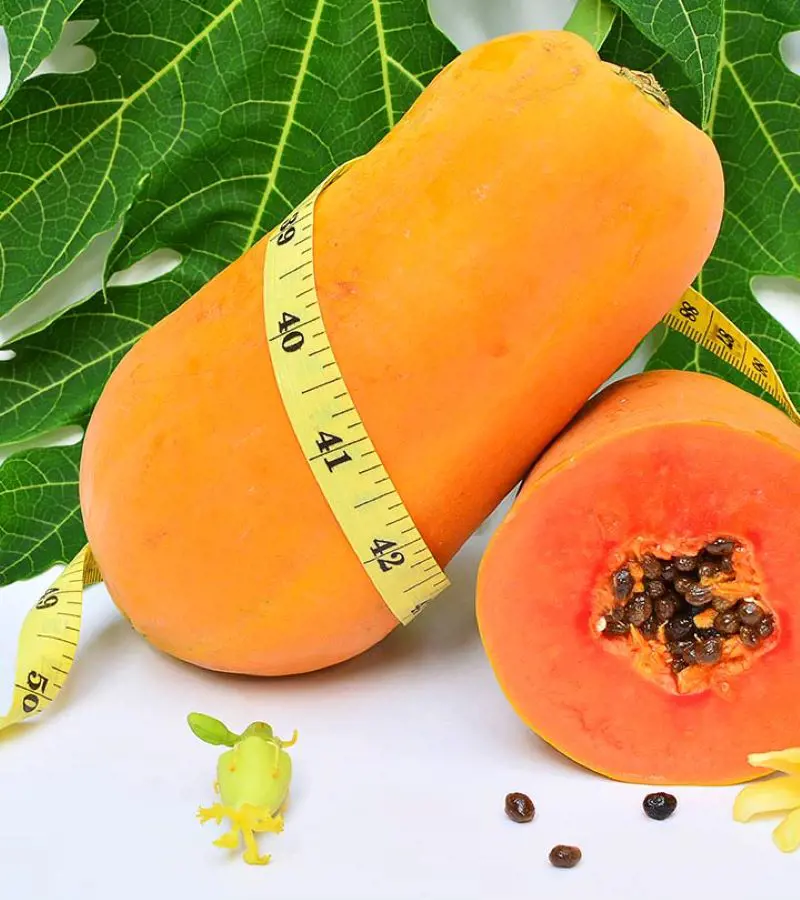
Eating papaya is a natural and effective way for weight management. It's rich in starch and fiber and low in calories, so having this fruit keeps you full for a long time and prevents you from consuming unhealthy snacks.
Serving 100 grams of this fruit supplies around 43 calories. For this reason, it's a satisfying vegan snack for weight loss. The fiber content in papaya may regulate your bowel movements, which promotes weight loss.
Health Benefits Of Papaya Seeds
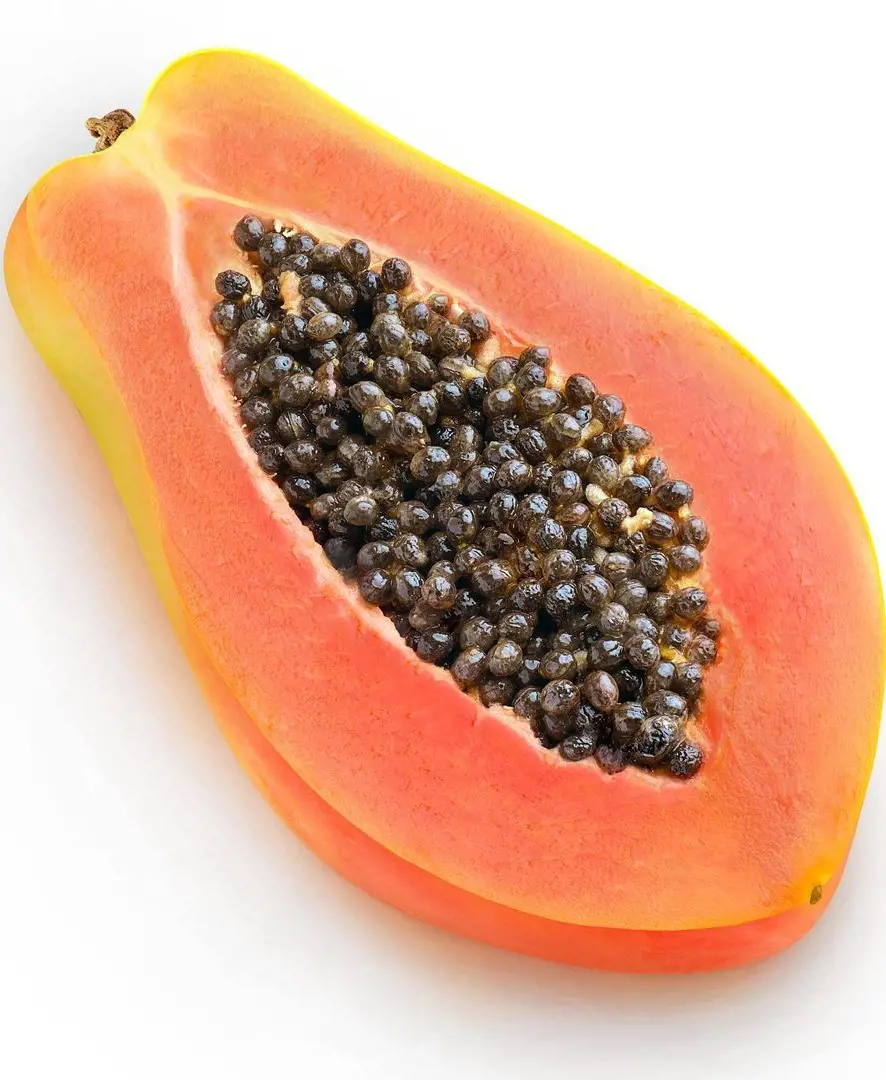
While eating papaya, most people throw away the seeds as they are unknown about its nutritional facts. They can prevent and heal illnesses linked to the gut, liver, and even conditions like Dengue.
The seeds have many nutrients that can assist you in healing cirrhosis of the liver. Even it helps detoxification of the liver and keeps liver diseases at bay.
The benefits of papaya seeds are:
- Protect the kidney
- Help cleanse the liver
- Improve intestinal health
- Protect the digestive system
- Absorb excess fat and sugar
- Help to treat inflammation
- Great for alleviating arthritis, joint disease, pain, swelling and redness
- Kill harmful bacteria
- Fight viral infections and cure Typhoid, Dengue, and other illnesses.
- Help in preventing the development of cancer cells and tumors
- Destroy parasites
Nutritional Value Of Papaya
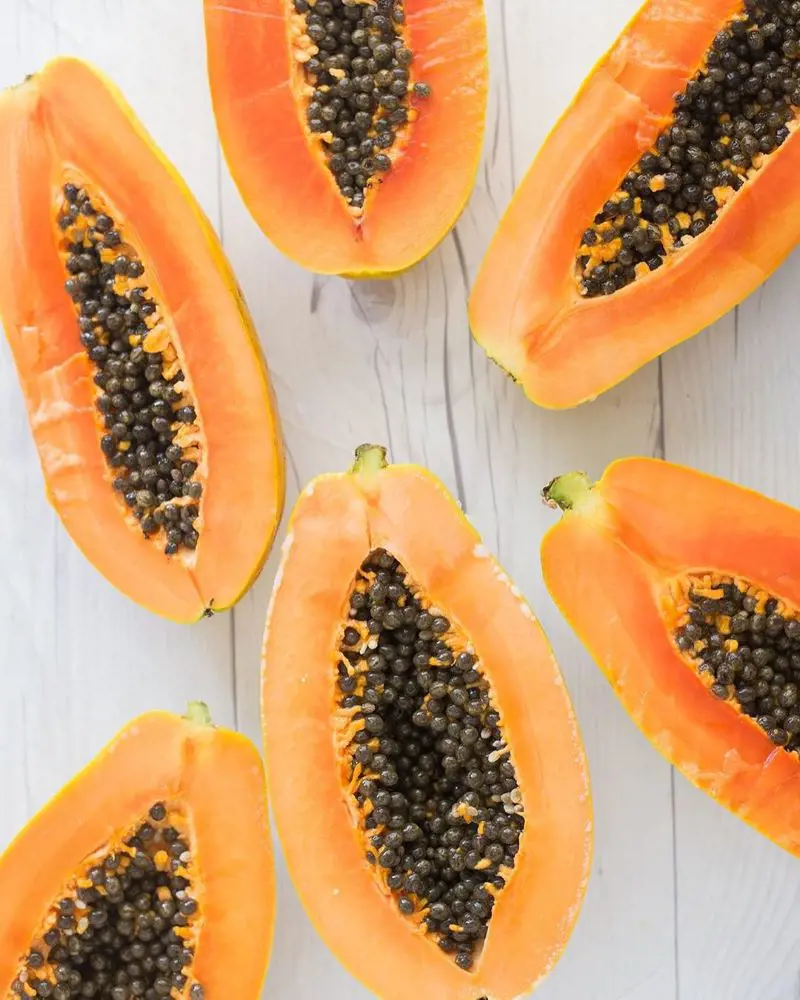
Papayas contain high levels of antioxidants, vitamins A, C, and E. Eating one medium-sized papaya supplies 100% of the daily value (DV) for vitamin C, per Healthline.
One small or 152 grams of papaya include:
- Calories: 59
- Carbohydrates: 15 grams
- Protein: 1 grams
- Fiber: 3 grams
- Vitamin A: 33% of the (recommended daily intake) RDI
- Vitamin C: 157%v of the RDI
- Folate (Vitamin B9): 14% of the RDI
- Potassium: 11% of the RDI
It also offers some portion of magnesium, calcium, and vitamins B1, B5, B3, E, and K.
Nutritional Value Of Papaya Seeds
Papaya seeds are filled with vitamins and minerals, such as magnesium, phosphorus, calcium, zinc, etc. They are also good sources of fat, fiber, and proteins.
Besides this, they are the powerhouse of antioxidants like polyphenols and flavonoids. They also offer monounsaturated fatty acids like oleic acid. Only serving 100 grams of dried papaya seeds supplies around 558 calories of energy in your body.
Adverse Effects Of Eating Papaya
Although papaya delivers several health benefits due to its rich nutritional profile, it may have side effects. Eating papaya might result in nausea and vomiting in some people. It even has some potential health risks.
So, before consuming this tropical, you should mind these few points.
- Avoid eating unripe papaya, as it includes high levels of papain that might damage the esophagus and cause lung infection.
- Having excessive amounts of papaya by pregnant and breastfeeding women is very harmful, as the unprocessed papain content can be toxic for the fetus or induce genetic disabilities.
- The latex or papain of papaya may result in allergic reactions in some people.
- Eating fermented papaya reduces blood sugar way too much, so individuals with hypoglycemia and diabetes should avoid it.
- Overconsumption of the papaya black seeds could cause cardiac depression or paralysis.
Recent posts
Nutrition
Nutrition
Licorice Root: Benefits And Uses
You can spell it liquorice or licorice; this herb or root has been in use for centuries in most medicinal applications, as a natural sweetener and to enhance flavors. Regarding its origins, it comes from the root of the "Glycyrrhiza galbre" plant and...
Nutrition
Is Salmon Good For You? Nutritional Facts and Benefits
Salmon fish is a staple diet throughout the world, popular as a super food for its nutrients. Whether savored in sushi, poached, grilled, roasted, or pan-fried, salmon offers minerals and vitamins that contribute to healthy bodily functions. In addit...
Nutrition
25 Smoked Salmon Recipes That You Will Enjoy
Salmon is a silver-colored fish that is loaded with many nutrients, vitamins, and omega-3 fatty acids. Smoked Salmon is better for improving your health and reducing the risk of cancer, heart-related diseases, fights inflammation, reduces anxiety and...
Nutrition
Are Sausages Healthy? Nutrition And Health Benefits
Sausages are tasty in an addictive way, making them one of the most popular foods worldwide. You may have enjoyed this convenient food often, whether on a bun with mustard or grilled on a barbecue, the simple preparation methods are what makes its co...
Nutrition
20 Vegetables That Are Rich In Iron
Iron is essential for our bodies to function well. When we don't get enough iron, we often feel weak and tired. It's important to address iron deficiency early by eating the right foods. Fortunately, many vegetables are rich in iron and can help prev...
Nutrition
15 Cauliflower Nutrition Facts And Health Benefits
Cauliflower, a cruciferous vegetable, resembles a white variation of its relative, broccoli. Like broccoli, it has closely bunched florets attached to a thick core, often surrounded by a few leaves. While white is the most common color, cauliflower i...


